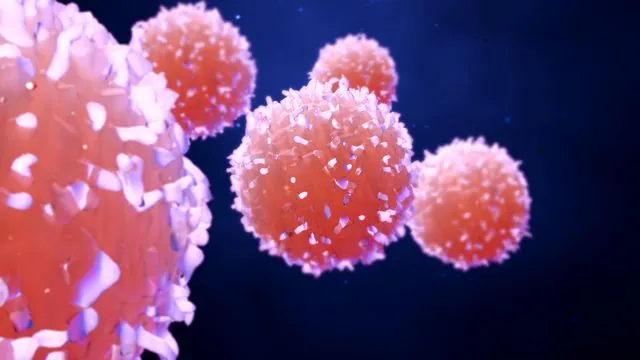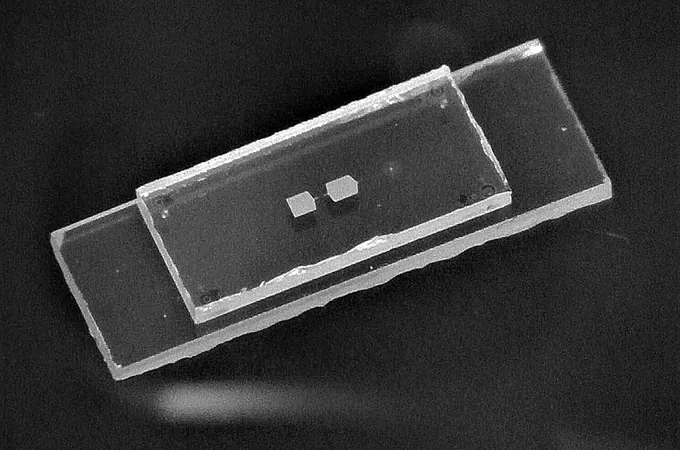
Groundbreaking Discovery: Small DNA Circles Uncovered as Key Players in Human Cancers
2024-11-07
Author: Charlotte
Groundbreaking Discovery: Small DNA Circles Uncovered as Key Players in Human Cancers
A groundbreaking trio of studies from Stanford Medicine and its international collaborators has transformed how scientists understand the role of small DNA circles—previously thought to be inconsequential—in driving various human cancers.
Published in *Nature* on November 6, these papers detail the prevalence and prognostic significance of extrachromosomal DNA (ecDNA) in nearly 15,000 cancer patients. The team's findings reveal a shocking new mode of genetic inheritance that challenges long-standing principles of genetics and introduce a promising anti-cancer therapy targeting these DNA circles, currently in clinical trials.
Led by Professor Paul Mischel, MD, the eDyNAmiC research group has attracted significant funding, securing a $25 million grant from the Cancer Grand Challenges initiative in 2022. This collaborative effort, co-founded by Cancer Research UK and the National Cancer Institute, aims to address some of the toughest challenges posed by cancer.
In Mischel’s own words, “We’re witnessing a radically new perspective on a prevalent and aggressive mechanism driving cancer,” highlighting the potential paradigm shift the research represents.
The studies reveal that ecDNAs, which often carry oncogenes, can significantly enhance cancer cell proliferation and help tumors evade the immune response. Previously underestimated, ecDNAs are now found in over 17% of tumors across 39 different types of cancer. Their prevalence particularly rises after targeted therapies or chemotherapy and is linked to metastasis and poor survival rates.
In a pivotal revelation, researchers, including those led by Howard Chang, MD, PhD, demonstrated that ecDNAs do more than just carry oncogenes; they also house enhancer sequences that boost the expression of other genes by linking different ecDNAs together. This cooperation among various ecDNAs is crucial for the survival and growth of cancer cells.
The studies also uncovered how these small DNA circles are inherited during cell division. Unlike traditional chromosomes, which segregate randomly, ecDNAs cluster together and are inherited as multi-circle units. This insight contradicts the classical genetic principle proposed by Gregor Mendel and suggests that cancer cells can quickly adapt through advantageous gene combinations, further fueling tumor growth.
But there’s a silver lining. The researchers found that the excess transcription of ecDNAs creates a vulnerability within the cancer cells. Their third paper highlights that inhibiting a specific checkpoint protein, CHK1, causes the demise of tumor cells containing ecDNA and reduces tumor growth in animal models.
Preliminary findings have led to the initiation of clinical trials testing CHK1 inhibitors in patients battling certain cancer types enriched with oncogenes on their ecDNAs.
As Mischel encapsulates, “These papers reflect what can be achieved when diverse research teams unite towards a common purpose. We are committed to further exploring the biology of ecDNAs and leveraging this knowledge for the benefit of patients worldwide.
This groundbreaking research not only enhances our understanding of cancer biology but also opens up new avenues for targeted treatments that could drastically change patient outcomes in the fight against one of humanity's most formidable foes. Keep an eye on this rapidly evolving field as it promises to redefine cancer research and therapy.









 Brasil (PT)
Brasil (PT)
 Canada (EN)
Canada (EN)
 Chile (ES)
Chile (ES)
 España (ES)
España (ES)
 France (FR)
France (FR)
 Hong Kong (EN)
Hong Kong (EN)
 Italia (IT)
Italia (IT)
 日本 (JA)
日本 (JA)
 Magyarország (HU)
Magyarország (HU)
 Norge (NO)
Norge (NO)
 Polska (PL)
Polska (PL)
 Schweiz (DE)
Schweiz (DE)
 Singapore (EN)
Singapore (EN)
 Sverige (SV)
Sverige (SV)
 Suomi (FI)
Suomi (FI)
 Türkiye (TR)
Türkiye (TR)